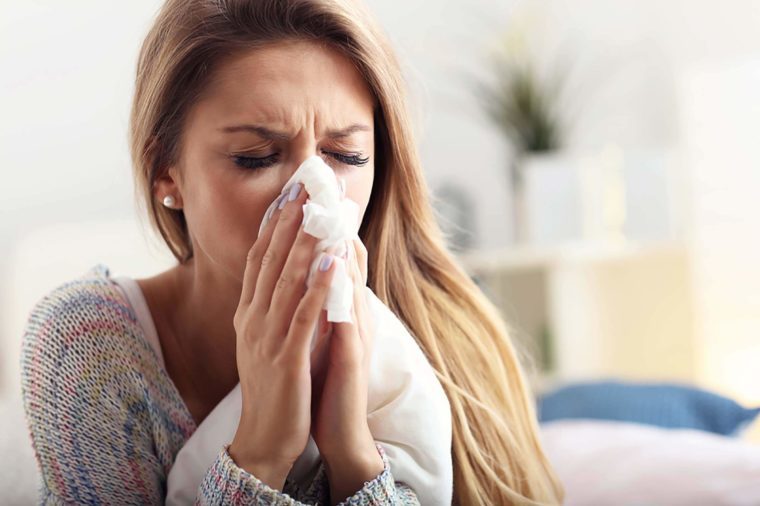Your nose gets dribbling wet when the temperature drops, but why do sniffly noses and winter or just being in a very cold air-conditioned place just seem to go together?
The cold air seems to trigger nervous system reflexes in the nose that cause glands in the nasal membranes to produce mucus; the problem may be particularly common in those with allergies.

How the nose responds to cold air
When cold air enters the nose, it stimulates the sensory nerves within the nasal cavity to activate a process via a cholinergic reflex or pathway. It causes the vessels in the nasal cavity to expand and become engorged, leading to congestion and mucus secretion which produces a runny nose. It’s a compensatory mechanism that’s trying to maintain ideal conditions inside the nose by adding humidity and warmth while filtering the air.
Cold air affects an important defense mechanism called mucus transport. The entire respiratory system is coated with a very thin mucus blanket. Cold air stimulates an increase in mucus production. In addition, mucus (like other substances) becomes thicker in colder temperatures.
In addition to the congestion, the mucus in the nose increases and becomes thicker. This happens more in some people than in others. Thus cold air, by itself, can produce both nasal congestion and stuffiness. These can be treated with decongestants and/or antihistamines.

Are some people more sensitive to changes in air temperature?
You Could Be Having Skier’s Nose If Your Nose Runs When Exposed To Cold Air
A 1991 study published in the journal Annals of Allergy, Asthma and Immunology found that nearly 100 percent of skiers complained about runny noses while participating in their sport. This syndrome is called Skier’s Nose.
While a runny nose is annoying in just about any season, it’s not harmful. If you’re really bothered by your runny nose caused by cold air, try taking an over-the-counter decongestant or avoid being exposed to very cold air, if possible.
And you can always follow mom’s advice: Before you go out in the cold, cover your nose and mouth with a scarf! I cover my nose and mouth with a thin blanket when I sleep in my air-conditioned room and this helps with preventing the sniffles in the morning. Air breathed through fabric will be warmer and more moist, which can cut down on those annoying drips.
